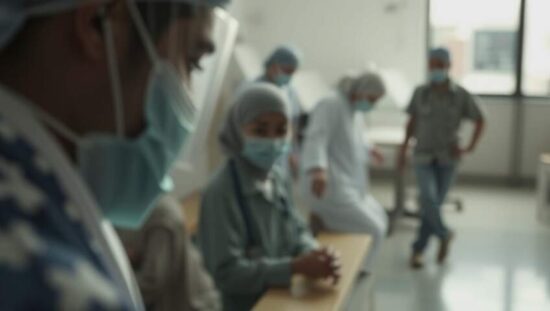The World Health Organization (WHO) has issued a stark warning regarding the escalating global crisis of antibiotic resistance, highlighting a significant setback for modern medicine and public health security. A newly released study, published Monday, reveals that in 2023, one in six laboratory-confirmed bacterial infections worldwide exhibited resistance to antibiotic treatments, a figure underscoring the urgent need for comprehensive intervention.
Data compiled from over 100 countries through the WHO’s Global Antimicrobial Resistance and Use Surveillance System (GLASS) indicates a disturbing trend: the rate of antibiotic resistance increased in over 40% of monitored pathogen-antibiotic combinations between 1998 and 2023 – reflecting an alarming average annual rise of 5-15%. This surge doesn’t simply represent statistical discomfort; it directly threatens the efficacy of standard medical procedures, from routine surgeries to the treatment of common illnesses.
The report paints a geographically uneven landscape of resistance severity. Regions of Southeast Asia and the Eastern Mediterranean are facing the most acute challenges, with roughly one-third of reported infections demonstrating resistance. Sub-Saharan Africa, while exhibiting a slightly lower prevalence at one in five infections, still presents a significant and growing concern. Gram-negative bacteria, known for their inherent resistance mechanisms, are identified as a particularly dangerous and widespread threat.
“Antibiotic resistance is outpacing advances in modern medicine and jeopardizing the health of families around the world” stated WHO Director-General Tedros Adhanom Ghebreyesus. While acknowledging the strengthening of antimicrobial resistance (AMR) surveillance systems in participating nations, he emphasized the necessity for responsible antibiotic stewardship. The call extends beyond mere prudent prescribing practices; it demands equitable access to appropriate medications, quality-assured diagnostics and preventative vaccinations-a crucial point when considering disparities in healthcare infrastructure and resource allocation across the globe.
The WHO’s assessment implicitly criticizes the uneven pace of global response to the evolving crisis. While surveillance efforts are improving, there is a clear need for accelerated investment in research and development of next-generation antibiotics, alongside the rapid deployment of point-of-care molecular diagnostics. Furthermore, the report subtly raises questions about the underlying drivers of resistance – potentially including agricultural practices utilizing antibiotics, inadequate sanitation and the lack of robust infection prevention and control measures in healthcare facilities, which demand coordinated international political action to address effectively. The future, according to WHO, hinges on strengthening comprehensive systems for infection prevention, diagnosis and treatment, alongside an urgent commitment to innovation in pharmaceutical intervention.





